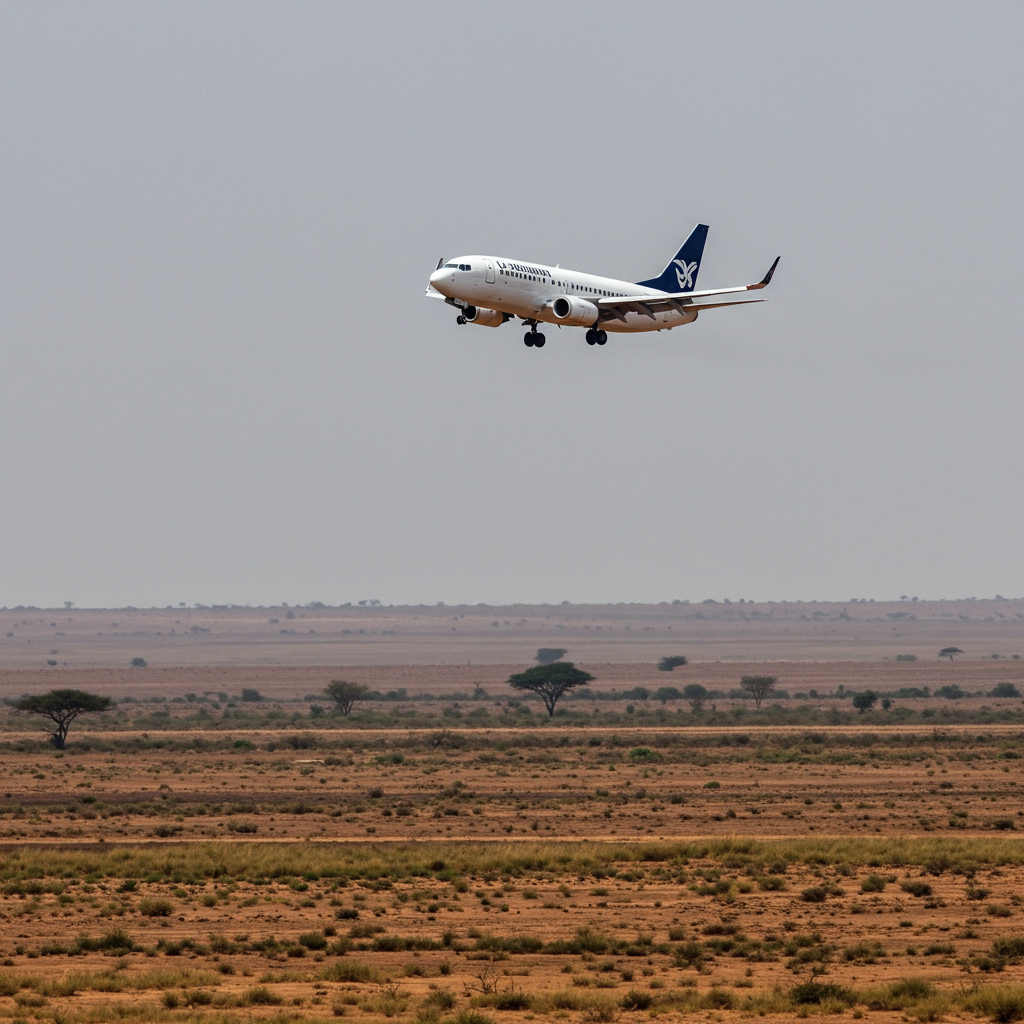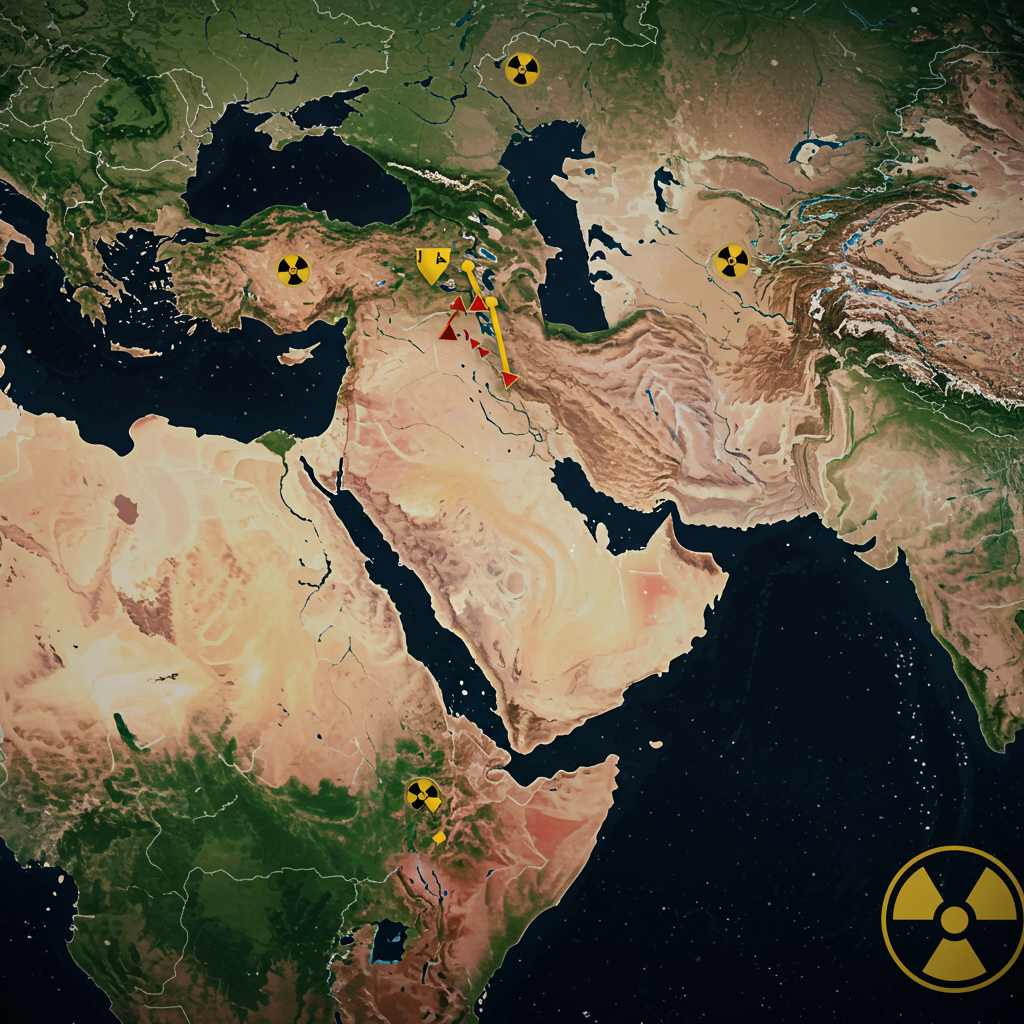In a contentious move concluding a weeks-long legal showdown, the United States government has successfully deported eight men with serious criminal convictions to south sudan. The deportation, finalized on Friday, July 5, occurred despite intense legal challenges and concerns about the instability and dangers prevalent in the receiving country. This action underscores the Trump administration’s push to expand deportations to third countries, even when the individuals involved have no direct ties to the destination nation.
Controversial Deportations Finalized Amidst Legal Battle
The deportation flight landed in South Sudan shortly before midnight EST on Friday, carrying the eight individuals who had been convicted of violent crimes within the U.S., including murder, sexual assault, and robbery. While the men had completed or were nearing the end of their prison sentences, they remained subject to final orders of removal from the United States.
Crucially, only one of the eight deportees held South Sudanese nationality. The others were nationals of Myanmar, Cuba, Vietnam, Laos, and Mexico. U.S. officials indicated that the home countries of most of these individuals had refused to accept them, presenting a key challenge that the administration sought to overcome through deportation to a third country.
South Sudan: A Dangerous Destination
The choice of South Sudan as the destination for these deportees has drawn significant criticism. The nation is widely described as unstable and teetering on the brink of civil war. The U.S. State Department maintains a stark warning advising Americans against all travel to South Sudan due to extreme risks, specifically citing crime, kidnapping, and armed conflict. Human rights advocates and lawyers for the men voiced grave concerns about the deportees’ safety and uncertain fate upon arrival in such perilous conditions. There was no official confirmation from U.S. officials regarding whether the South Sudanese government would detain the men or what their immediate future would hold.
The Protracted Judicial Struggle
The completion of these deportations followed a complex and evolving legal battle that saw the case reach the highest court in the land. The journey for these eight men initially began in May when they were flown out of the U.S. However, their flight was unexpectedly diverted to Djibouti. This diversion occurred after U.S. District Judge Brian Murphy in Massachusetts issued a ruling blocking the deportation. Judge Murphy had previously ruled that migrants being deported to countries other than their homeland must receive adequate notice and an opportunity to be interviewed by a U.S. asylum officer to challenge their removal.
The men subsequently spent weeks held under guard at Camp Lemonnier, a U.S. military base in Djibouti. Conditions at the base were reportedly challenging for both detainees and supervising officials, with risks including extreme heat and the potential for rocket attacks. While held there, their legal challenge against the deportation continued to unfold in U.S. courts.
Supreme Court Intervention Clears the Way
The case escalated to the Supreme Court. In a significant development in June, the Court’s conservative majority issued a ruling that broadly suspended Judge Murphy’s earlier order requiring specific due process hearings for deportations to third countries. This decision signaled a shift in the judiciary’s ability to halt such removals based on procedural grounds.
The Supreme Court then specifically revisited the case of the eight men held in Djibouti. On the Thursday before the deportations were finalized, the Supreme Court issued a clarifying decision. This ruling confirmed that Judge Murphy could no longer require the government to provide the men with due process hearings or prevent their removal, explicitly stating that the legal basis for his earlier block had been paused.
Last-Ditch Legal Efforts Fail
Following the Supreme Court’s clearance, lawyers for the men pursued last-minute appeals. On Friday, they asked Judge Randolph Moss in Washington, D.C., to intervene. Judge Moss initially granted a brief pause, expressing concerns about the men’s physical safety in South Sudan and noting that the U.S. government should not inflict “pain and suffering” on individuals who had served their sentences, even for “terrible crime[s].” However, he ultimately concluded that his authority was limited by the Supreme Court’s rulings and directed the case back to Judge Murphy in Boston.
Later on Friday, Judge Murphy issued a brief ruling denying the request to halt the deportations. He stated that the Supreme Court’s decisions had “tied his hands” and were “binding,” effectively removing his jurisdiction to block the removal despite the potential dangers faced by the deportees in South Sudan. This sequence of rulings demonstrates the significant impact the Supreme Court’s stance had on the judiciary’s ability to halt executive actions regarding deportations.
Government Hails “Victory” Over “Activist Judges”
The Trump administration celebrated the successful completion of the deportations. Assistant Secretary Tricia McLaughlin from the Department of Homeland Security (DHS) characterized the South Sudan deportation as a “victory for the rule of law, safety and security of the American people.” She also explicitly stated that a “district judge cannot dictate the national security and foreign policy of the United States of America,” framing the outcome as a win against “activist judges” who had sought to impede the administration’s actions.
In court filings, the administration claimed that South Sudanese officials had provided assurances that the deportees would not face torture. A Justice Department attorney also mentioned that South Sudan indicated they would offer the men temporary immigration status, though the prospect of their detention remained unclear.
Broader Policy and Human Rights Concerns
This case is seen within the broader context of the Trump administration’s efforts to expand its ability to deport individuals, particularly those with criminal records, to third countries if their home nations prove unwilling to accept them. The administration had previously deported individuals to countries like El Salvador and Costa Rica. Media reports and official confirmations indicated discussions or potential arrangements with various other nations, including Rwanda, Benin, Angola, Equatorial Guinea, Eswatini, and Moldova, for receiving deportees.
Human rights advocates expressed profound alarm over the deportations, arguing they were punitive, unconstitutional, and violated basic human decency by sending individuals to a country the U.S. itself deems unsafe. Lawyers like Trina Realmuto argued the men were denied a crucial opportunity to challenge their deportation based on well-founded fears of torture or death, due to the Supreme Court’s procedural ruling. The controversial nature of deporting individuals to a country facing civil unrest and severe safety warnings highlights the ethical and legal debates surrounding these expanded deportation policies. Earlier in the year, Secretary of State Marco Rubio had revoked all visas for South Sudanese passport holders, citing the country’s prior refusal to accept deported nationals, illustrating the ongoing diplomatic pressures involved in these cases.
Frequently Asked Questions
What was the primary legal challenge that delayed the deportation?
The initial legal challenge arose from a ruling by U.S. District Judge Brian Murphy. He mandated that individuals being deported to countries they were not citizens of must receive adequate notice and an opportunity to speak with a U.S. asylum officer to contest their removal based on potential danger. This requirement led to the flight being diverted to Djibouti in May and the men being held there while the legal process unfolded.
Why were the men deported to South Sudan if most were not from there?
According to U.S. officials, the men were deported to South Sudan because their home countries (including Myanmar, Cuba, Vietnam, Laos, and Mexico) had refused to accept them back after they completed their prison sentences in the U.S. The Trump administration sought to expand deportations to “third countries” as a solution when repatriation to a deportee’s country of origin was not possible.
What are the concerns about the men’s safety in South Sudan?
Significant concerns exist regarding the safety of the deported men in South Sudan due to the country’s extreme instability. The U.S. State Department warns against travel there because of civil war risk, crime, kidnapping, and armed conflict. Critics argue that deporting individuals to such a dangerous environment, particularly without due process to assess their fears, is unethical and potentially places them at risk of detention, torture, or death.
Conclusion
The deportation of eight individuals to South Sudan marks the culmination of a significant legal battle that tested the boundaries of judicial review and executive authority in immigration matters. While the administration frames this as a necessary step for public safety and a victory for the rule of law, critics highlight the human cost and potential dangers faced by the deportees in a volatile nation like South Sudan. This case underscores the complexities inherent in U.S. deportation policy, particularly the controversial use of third countries for individuals who have served sentences but cannot be returned to their homelands.




